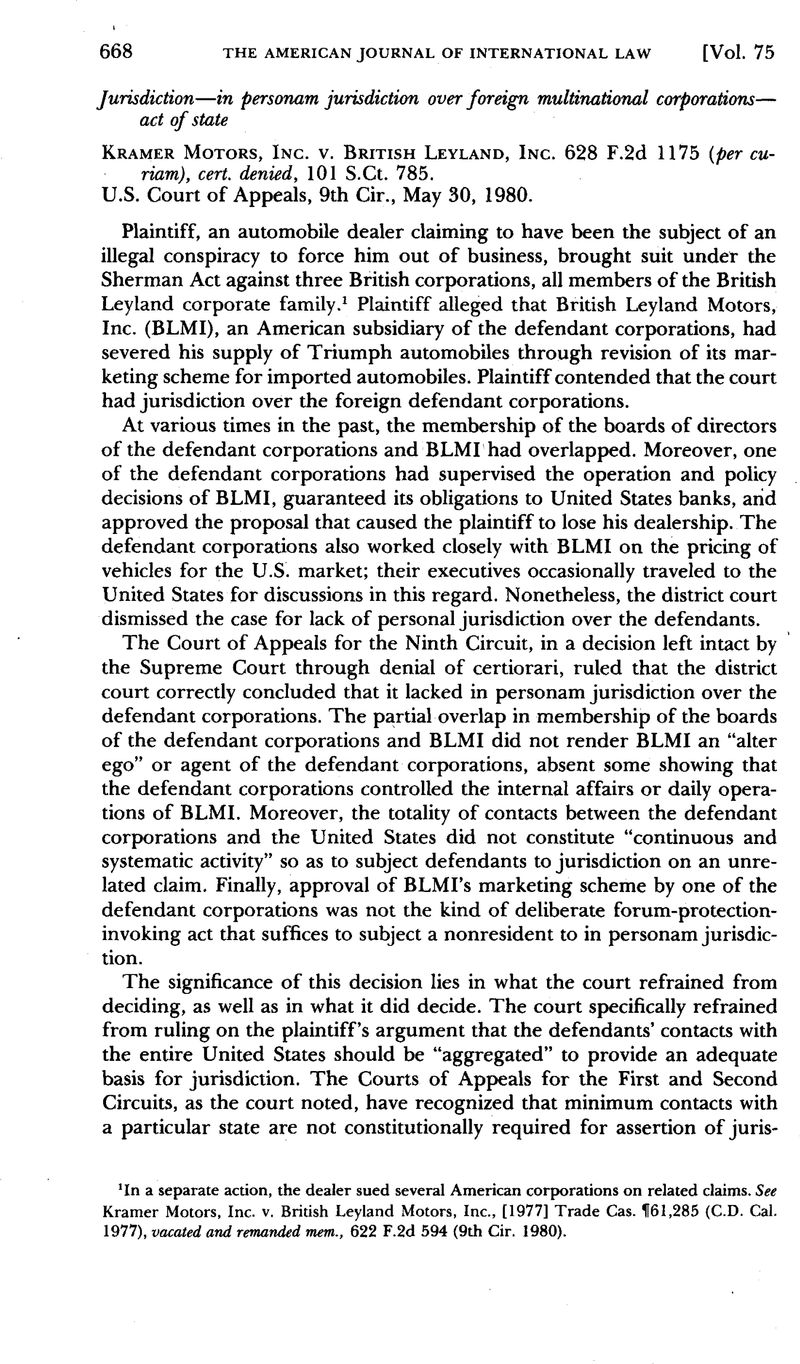No CrossRef data available.
Article contents
Kramer Motors, Inc. v. British Leyland, Inc.
Published online by Cambridge University Press: 27 February 2017
Abstract

- Type
- Judicial Decisions
- Information
- Copyright
- Copyright © The American Society of International Law 1981
References
1 In a separate action, the dealer sued several American corporations on related claims. See Kramer Motors, Inc. v. British Leyland Motors, Inc., [1977] Trade Cas. ¶61,285 (CD. Cal. 1977), vacated and remanded mem., 622 F.2d 594 (9th Cir. 1980).
2 628 F.2d 1175, 1177 (citing Driver v. Helms, 577 F.2d 147, 154–57 (1st Cir. 1978), rev’d on other grounds sub nom. Stafford v. Briggs, 444 U.S. 527 (1980); Leasco Data Processing Equip. Corp. v. Maxwell, 468 F.2d 1326, 1339–43 (2d Cir. 1972)).
3 376 U.S. 398 (1964). In Sabbatino, an agent of the Cuban Government sought proceeds from the sale of sugar that had been expropriated from U.S. interests in Cuba. The Court held that, in the absence of an unambiguous agreement setting forth controlling legal principles, the act of state doctrine prevented U.S. courts from adjudicating the validity of the taking by Cuba of property located within its own territory. Id. at 415.
4 628 F.2dat 1178.
5 425 U.S. 682 (1976). In Dunhill, the former owners of expropriated businesses in Cuba sought payment by Dunhill and other importers for all tobacco shipments made before and after the expropriation. Receivers appointed by the Cuban Government to run the expropriated concerns intervened, claiming that they, and not the former owners, were entitled to the payments. The district court, inter alia, ordered all payments made prior to the expropriation to be turned over to the former owners. On appeal, the Supreme Court essentially held that the receivers, who had refused to repay the funds, had failed to satisfy their burden of proof in demonstrating that their refusal constituted an exercise of sovereign authority. Four members of the Court further concluded that even if the receivers had met their burden of proof, the act of state doctrine would not immunize them from suit because the refusal to repay was a commercial rather than a public act. Id. at 705.


